Coptic Orthodox
Abba Macarius Teahes Abba Evagrius to Call upon the Name of Christ
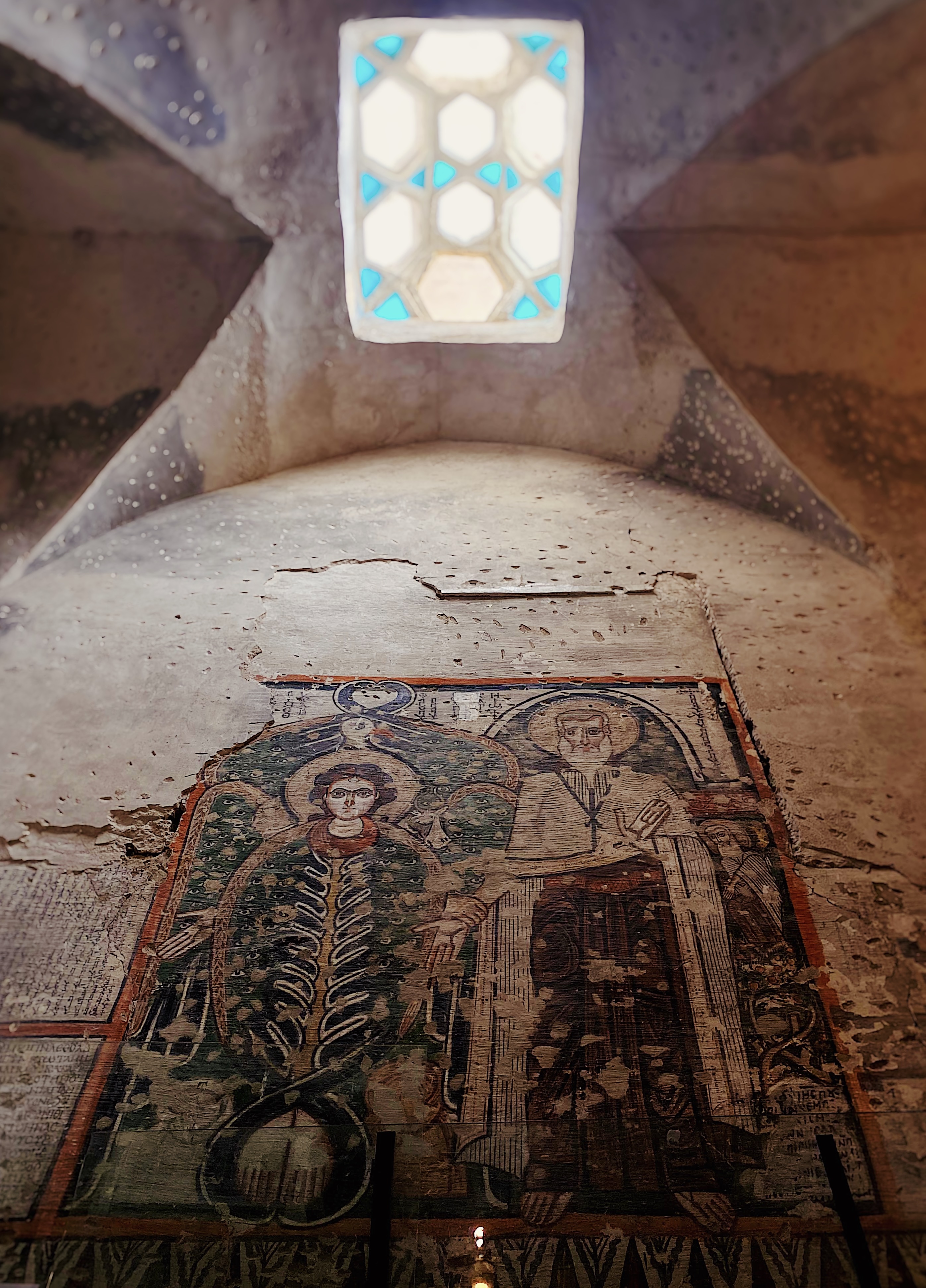
The Blessed Feast of Abba Macarius the Great - Paremhot 27, April 5
 A true friend is there for you when you need him. A true friend will sacrifice for you without wanting anything back. Out of his great love for you, he will want what is best for you and will want you to love him back as much as you can and will constantly think, “How can I show this person I love him and want him to love me too?” Such is the love God has for us: “For God so loved the world that He gave His only begotten Son, that whoever believes in Him should not perish but have everlasting life.” (John 3:16). He loves us to the point of offering Himself as a sacrifice for our sins that we may turn back to Him and abide in Him and love Him back with all our hearts.
A true friend is there for you when you need him. A true friend will sacrifice for you without wanting anything back. Out of his great love for you, he will want what is best for you and will want you to love him back as much as you can and will constantly think, “How can I show this person I love him and want him to love me too?” Such is the love God has for us: “For God so loved the world that He gave His only begotten Son, that whoever believes in Him should not perish but have everlasting life.” (John 3:16). He loves us to the point of offering Himself as a sacrifice for our sins that we may turn back to Him and abide in Him and love Him back with all our hearts.
In the journey of Great Lent, we must always, our brothers and sisters, give thanks to the Lord for all blessings He has bestowed upon us,
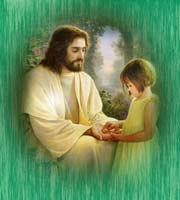 Fr. Bishoy Kamel1 visited a sick person who was complaining from pain in his back. Abouna Pishoy started to give him words of solace, but the man answered, "I'm not asking God to take away my illness. I only ask Him to give me the strength to stand up for prayer and take from me the severe headache that hinders me from praying 'Our Father.' As long as the headache was there, I couldn't concentrate on one word."
Fr. Bishoy Kamel1 visited a sick person who was complaining from pain in his back. Abouna Pishoy started to give him words of solace, but the man answered, "I'm not asking God to take away my illness. I only ask Him to give me the strength to stand up for prayer and take from me the severe headache that hinders me from praying 'Our Father.' As long as the headache was there, I couldn't concentrate on one word."
Abouna Pishoy replied, "Don't be upset if you are not able to attend church or stand up for prayer, or even say 'Our Father,' because you participate in Jesus' suffering. Give thanks for this participation. For Jesus also suffered back pain under the heavy burden of the cross."
Some days later, when this sick man came to
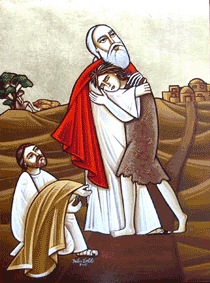 Imagine you are in a big garden, one with flowers of all beautiful bright colors imaginable, with bright blue skies and clear blue waters flowing smoothly like silk; the sun is shining a gentle warmth you’ve never felt before, and the grass is the perfect shade of green. Imagine being carefree, no responsibilities of the world to worry about, just as you were as a child. Imagine having all this and remember God’s promise to us: that He will give us “what no eye has seen nor ear heard”: a true Paradise indeed, one so good that we cannot even imagine it. Such is the promise that we are hoping and waiting for.
Imagine you are in a big garden, one with flowers of all beautiful bright colors imaginable, with bright blue skies and clear blue waters flowing smoothly like silk; the sun is shining a gentle warmth you’ve never felt before, and the grass is the perfect shade of green. Imagine being carefree, no responsibilities of the world to worry about, just as you were as a child. Imagine having all this and remember God’s promise to us: that He will give us “what no eye has seen nor ear heard”: a true Paradise indeed, one so good that we cannot even imagine it. Such is the promise that we are hoping and waiting for.
Do you want to be made well?
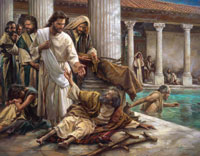
Fifth Sunday of the Great Lent:
There have been many great events throughout the history of the world, many with riveting results. But none can begin to approach the earth-shattering impact made by the life, death, and resurrection of Jesus Christ. Whether one is a devout Christian or a vehement atheist it would be impossible for any honest historian to deny this. No atomic bomb, world war, genocide, or trip to the moon could come close to the significance of St. John’s opening words in his



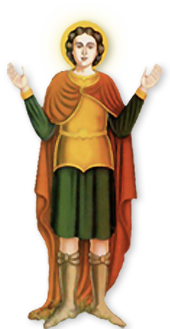





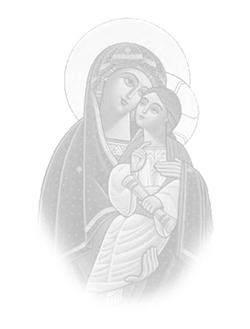



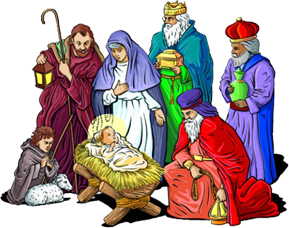

 Subscribe to RSS Feed
Subscribe to RSS Feed